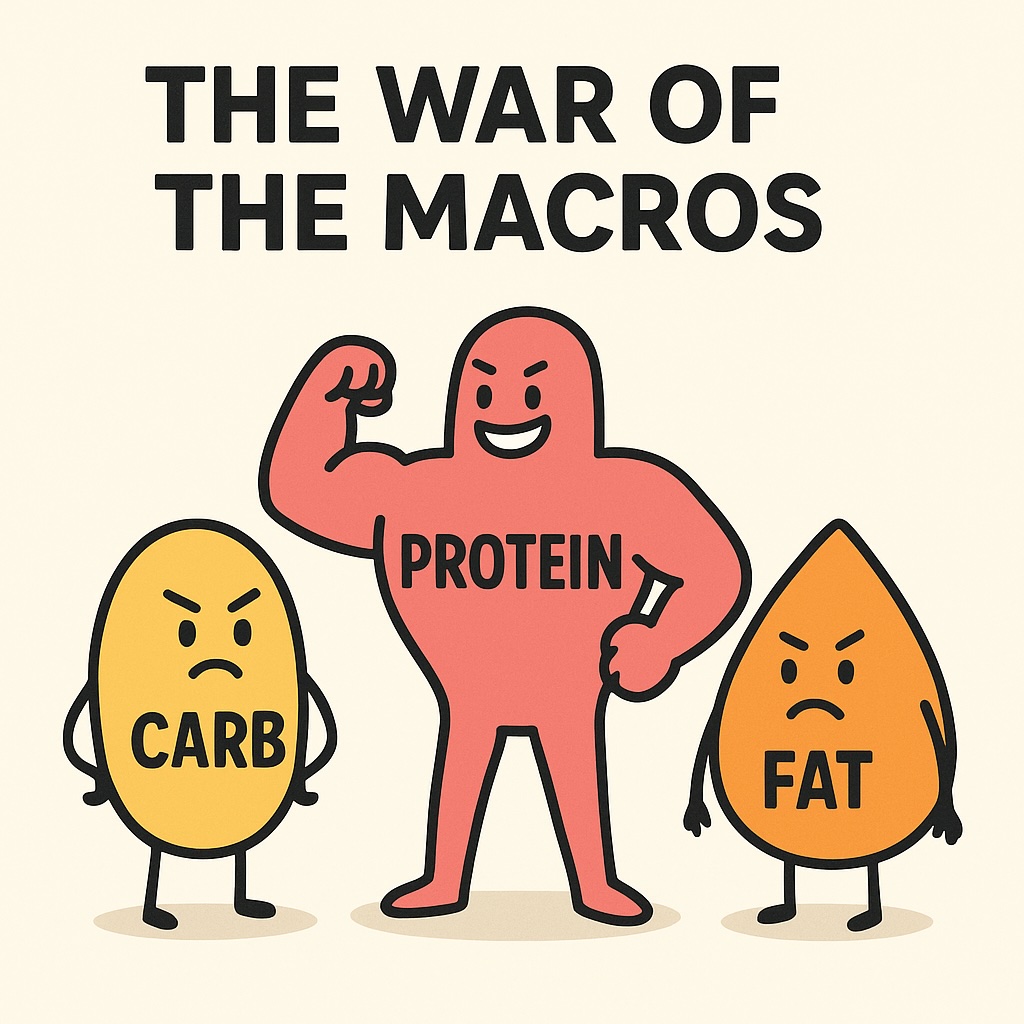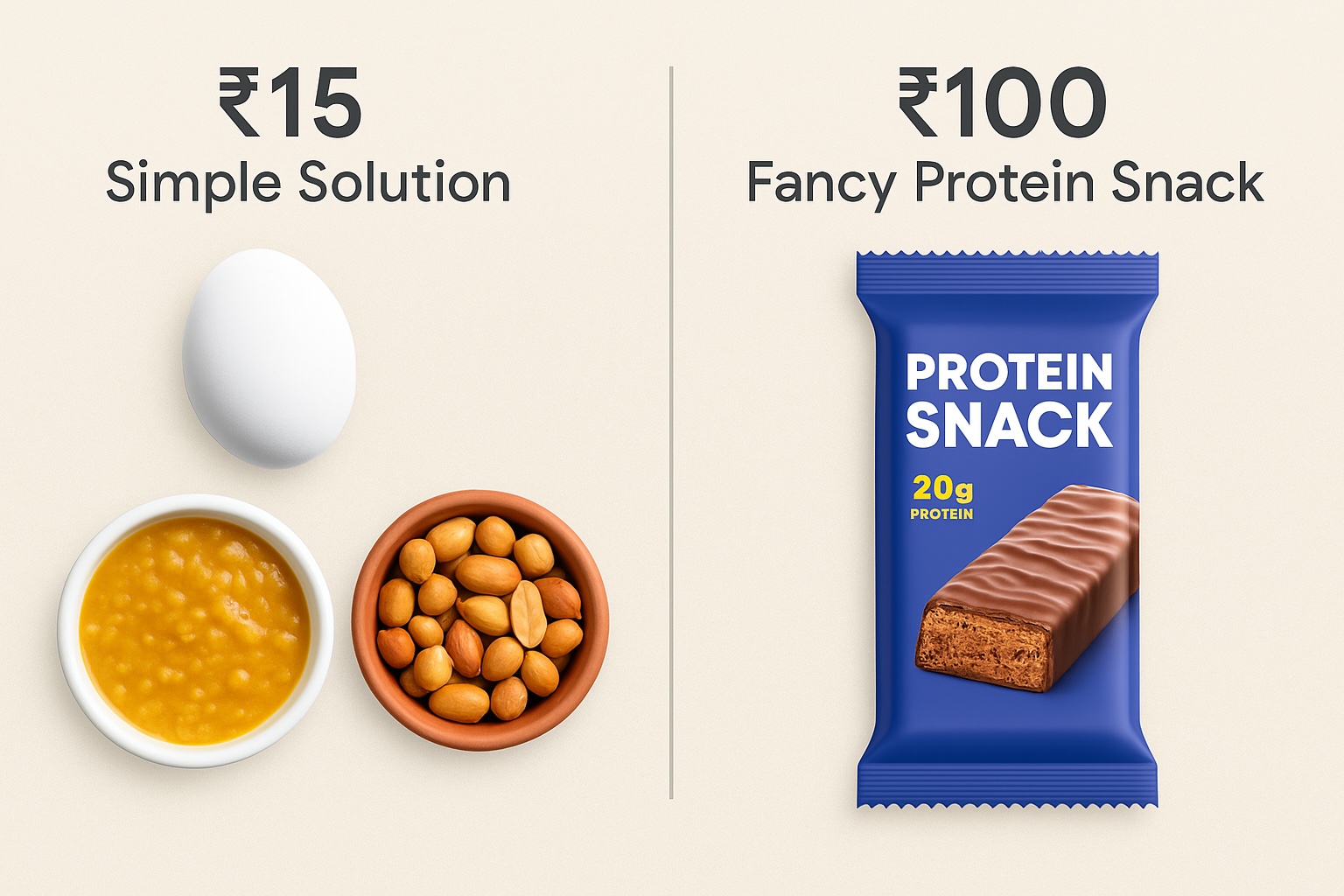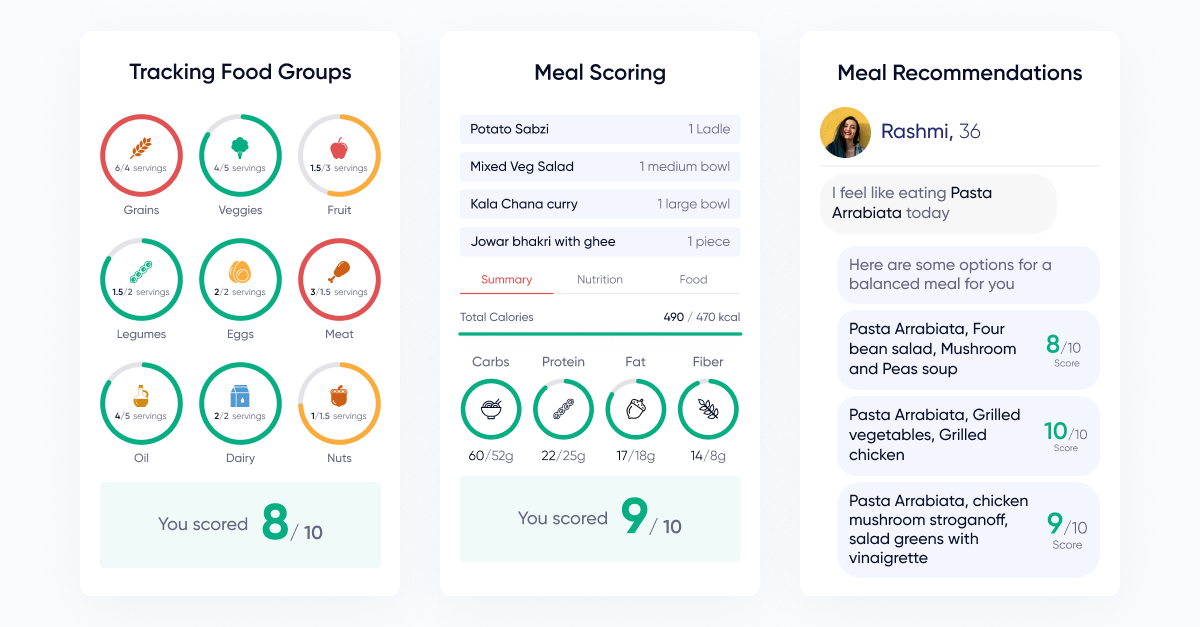
In today’s health and fitness world, nutrition advice often sounds like a courtroom drama. Protein takes the stand as the undisputed hero, carbs are accused of every crime under the sun, and fats are told to stay quiet in the background. But when you look at the data, science, and nutrition guidelines, the story is far more nuanced.
It’s time to settle this debate: all three macronutrients—carbohydrates, proteins, and fats—are essential. The real question is not which one is more important, but how much of each your body truly needs.

Carbs are often portrayed as the villain in modern diets, especially with the rise of low-carb and keto trends. But here’s what science says:
So yes, carbs provide glucose for energy, but they also carry the vitamins, minerals, and fiber you can’t do without.
Fat has been misunderstood for decades. Low-fat diets became popular in the 90s, but the science tells us:
Cutting fats too low means sabotaging your brain and hormone health—no matter how “clean” your carbs and proteins look.
Protein deserves the spotlight, but maybe not the superstar treatment it gets from every influencer selling protein bars and shakes. Here’s the reality:
Protein matters, but it’s not the nutrient. It’s one of three.
According to nutrition science and dietary guidelines, here’s what a balanced 2000-calorie diet typically includes:
Notice how carbs still form the majority of your intake—not because they’re “bad,” but because they’re the primary source of energy, fiber, and vitamins.

The data is clear: you can’t pit macros against each other. A low-carb diet risks vitamin and fiber deficiencies. A low-fat diet harms brain and hormone function. A low-protein diet weakens your body.
Yet, thanks to diet culture and marketing, we’re told:
In truth? They’re all essential, just in different proportions.
It’s not about eliminating one—it’s about balancing all three. The war of the macros isn’t about choosing sides. It’s about knowing the science and trusting the data.





